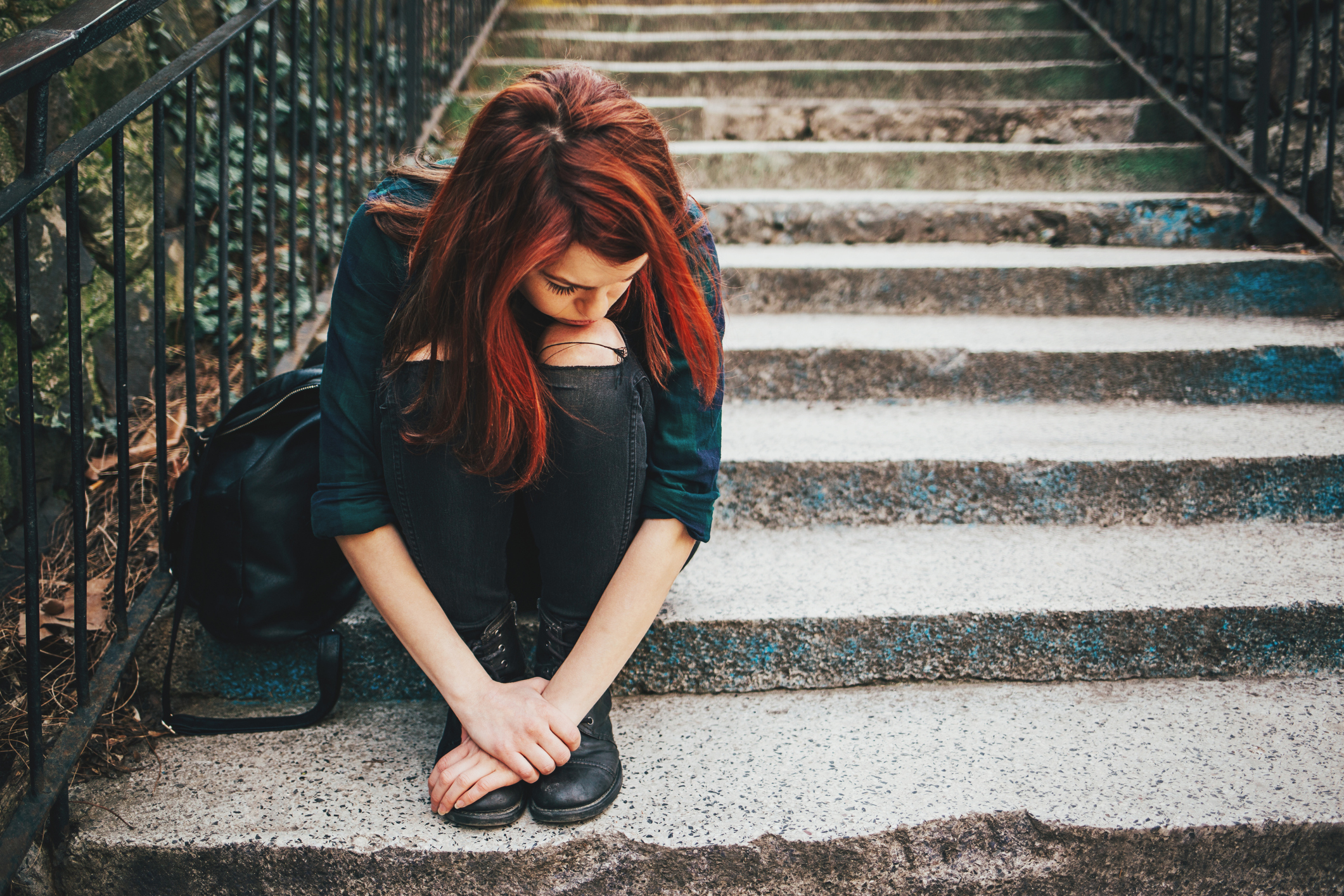I Think My Child Is Self-harming: What Can I Do?

Self-harming can affect anyone. A recent national study reported that 7.3% of girls, and 3.6% of boys, aged 11 to 16, had self-harmed or attempted suicide at some point. The figures for 17- to 19-year-olds were 21.5% for girls and 9.7% for boys. A useful way to think of it is that it's a physical response to emotional pain such as being bullied, uncertainty about sexuality or traumas like abuse or bereavement. People who self-harm don't know how to deal with these feelings, and self-harm can feel like a way to relieve that pressure.
It may also have its roots in psychological disorders. Sometimes self-harming can even be seen as 'cool' among a group of friends, so a child may start to self-harm just to fit in.
Some people who self-harm may be at a higher risk of suicide, but the relief it provides may help them not to go any further.
What to Look Out For
There are several physical signs to look out for such as unexplained cuts, bruises or cigarette burns, especially on the arms and legs, although they could be anywhere. Sometimes self-harmers may pull their hair out. They may hit themselves or take poisonous substances.
Alarm bells should also ring if your child remains fully covered up with long sleeves, trousers and robes, even in the warmest weather.
Often a child that is self-harming will have very low moods, be withdrawn and lacking in motivation. Sometimes, children who are self-harming may also have an eating disorder.
What to Do
Studies have suggested that being exposed to self-harm in others can increase the chances of self-harm, so first, keep an eye on any brothers or sisters of your self-harming child. Ensure that they are ok and give them a chance to talk to you about things, especially if they are aware of the situation.
It will certainly help if you acknowledge your self-harming child's emotional worries and offer your love and support, giving them the opportunity to tell you how they feel and beginning to talk about new ways of coping with their emotions.
It can be hard to know where to start: try very general open questions and give your child lots of space to talk. Pick a time when you are both more relaxed. Try to be open about the harm caused and how they can best take physical care of themselves.
If your child finds it difficult to talk to you, they could try writing or texting to explain what's happening. They may be more comfortable calling a helpline. Two confidential and anonymous ones are:
- Child Line: 0800 1111, aimed at anyone up to 19
- The Mix for young people between 13 and 25: 0808 808 4994
You could suggest some other things your child can try when the urge to hurt themself strikes:
- Challenging themself not to self-harm for 5 minutes
- Listening to a happy song
- Speak to someone they trust
- Watch videos
- Use stress toys
- Massaging the place they want to hurt
- Writing a journal and becoming more mindful (check out free mindfulness apps)
- Doing something physical - take the dog out, start yoga, sport.
Discovery Can Make It Worse - Initially At Least
Sometimes discovering that you've found out about their self-harming can make it even worse: your child may feel guilt at causing you distress, which can intensify the symptoms. Your child may also feel dependent on self-harming and be too scared to stop in case their emotions get too much.
Some people find the adrenalin rush from self-harming addictive, and, like any addiction, it takes more to achieve the same feeling, the more they continue.
Professional Help
Remember that self-harming hurts: it can be too easy to assume that your child doesn't feel physical pain like the rest of us. It also can be dangerous. For immediate injuries, you may need to call NHS 24, attend a drop-in centre or go to A&E.
You also should be working with your child to visit your GP as the first step to assessing what is going on and possible referral to specialists. During term-time, enlist the help of your child's school - speak to the Guidance Teacher, Pastoral Tutor or School Nurse. It's very important not to go behind your child's back - discuss with them who you're going to speak to and why - get them on-side and if possible have them present.
Remember Yourself
Also remember to look after yourself. It is natural to feel guilty, sad and upset in this situation. Try these websites and helplines when you need some support:
- Speak to an Expert- available (with notice) within your Work + Family Space from Bright Horizons
- Young Minds Parents' helpline 0808 802 5544
- Family Lives (England and Wales) 0808 800 2222
- Parentline Scotland 08000 28 22 33
- Parentline Northern Ireland 0808 8020 400
---
Richard Andrews, Expert Coach
Following a career in The City, Richard became a full-time executive coach. He has also volunteered as a call-taker at Parentline for more than 16 years





